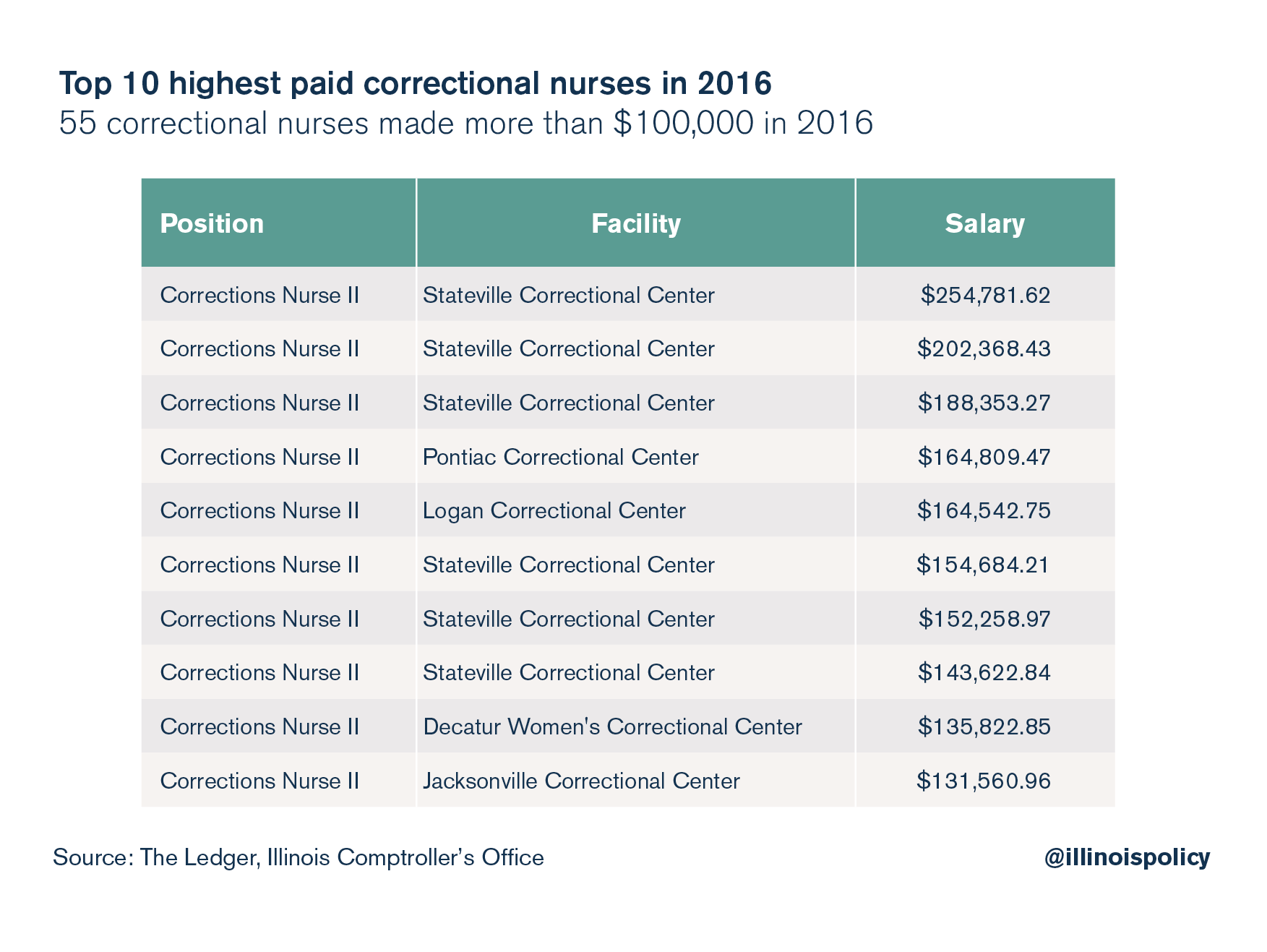Illinois Department of Corrections paid 55 nurses over $100K per year
Despite a fight from the union, the Illinois Department of Corrections is replacing 124 unionized nurses with private subcontractors, which could save taxpayers millions each year.
Seventy-seven nurses working for the Illinois Department of Corrections, or IDOC, made at least $90,000 in 2016 – 55 of those nurses made over $100,000, and two made more than $200,000 for the year.
The annual mean salary for a registered nurse in Illinois is $70,890, according to the Bureau of Labor Statistics. According to BLS data, in 2016 the annual mean salary for a nurse practitioner in Illinois was $98,300.

To cut down on costs, IDOC announced more than 100 unionized nurses at a dozen Illinois prisons will be laid off and replaced by private workers. A spokeswoman for IDOC told The Associated Press the privatization of the positions would save taxpayers $8 million.
The Illinois Nurses Association, or INA, released the notice it received that 124 nurses represented by the union will be laid off effective June 15, to be replaced with subcontractors. According to the notice, INA was notified of IDOC’s intent to move ahead with subcontracting Jan. 31, 2017, and the department offered to meet with the union multiple times in March to discuss the move. The union, though, declined those invitations, according to the IDOC notice.
Regardless of the benefit to taxpayers, the INA worked to fight the layoffs pre-emptively. Throughout 2016, the union lobbied for House Bill 5104, which would have put a limit on the state’s ability to subcontract important mental and other health services the state’s inmates need. The bill was designed solely to maintain existing state worker jobs, even if those jobs are no longer needed or if the state can find a more affordable option for taxpayers. HB 5104 passed both chambers of the General Assembly in 2016, but Gov. Bruce Rauner vetoed it with an amendatory veto. The Illinois House of Representatives failed to override the governor’s amendatory veto.
The state also filed an unfair labor practice charge against INA. The state claimed INA lobbied for the provision in HB 5104 prohibiting the state from subcontracting work for nurses at IDOC after INA negotiators had reached a tentative agreement with the state, which included the issue of subcontracting. The state alleged that because INA did not get what it wanted on subcontracting in negotiations, it went to the General Assembly to get HB 5104 passed to get around the bargaining process.
This is a familiar tactic of government worker unions that cozy up to politicians. The American Federation of State, County and Municipal Employees, both in 2015 and 2016, tried the same maneuver. Before AFSCME and the state of Illinois reached their current impasse, AFSCME pushed for bills in the General Assembly to remove Rauner from the negotiating table. This would have helped AFSCME as it pursued its extravagant demands in contract negotiations, but Rauner vetoed both pieces of legislation, similar to HB 5104.
With Illinois in financial crisis, the state needs to look at ways to find cost savings for taxpayers. Saving taxpayers millions each year – while still maintaining an important service, such as providing inmates with decent health care – is an easy decision to make. Protecting unneeded, high-priced government worker jobs is not a convincing counterargument.